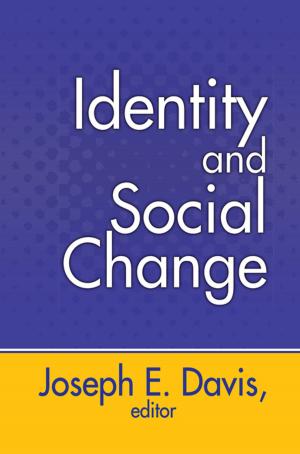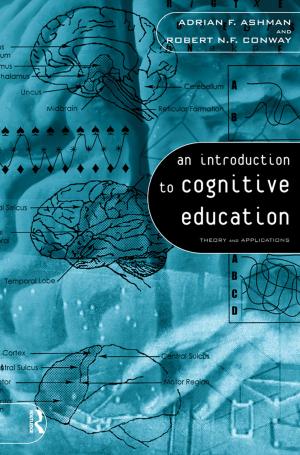The Psychology of Sport Injury and Rehabilitation
Nonfiction, Health & Well Being, Medical, Specialties, Sports Medicine, Sports, Reference, Sports Psychology| Author: | ISBN: | 9781135906207 | |
| Publisher: | Taylor and Francis | Publication: | March 20, 2013 |
| Imprint: | Routledge | Language: | English |
| Author: | |
| ISBN: | 9781135906207 |
| Publisher: | Taylor and Francis |
| Publication: | March 20, 2013 |
| Imprint: | Routledge |
| Language: | English |
Athletes routinely use psychological skills and interventions for performance enhancement but, perhaps surprisingly, not always to assist in recovery from injury. This book demonstrates the ways in which athletes and practitioners can transfer psychological skills to an injury and rehabilitation setting, to enhance recovery and the well-being of the athlete.
Drawing on the very latest research in sport and exercise psychology, this book explores key psychological concepts relating to injury, explaining typical psychological responses to injury and psychological aspects of rehabilitation. Using case studies in every chapter to highlight the day-to-day reality of working with injured athletes, it introduces a series of practical interventions, skills and techniques, underpinned by an evidence-base, with a full explanation of how each might affect an athlete’s recovery from injury.
The Psychology of Sport Injury and Rehabilitation emphasises the importance of an holistic, multi-disciplinary approach to sports injury and rehabilitation. No other book examines the psychological aspects of both sports injury and the rehabilitation process, and therefore this is an essential resource for students, scholars and practitioners working in sport psychology, sports therapy, sports medicine or coaching.
Athletes routinely use psychological skills and interventions for performance enhancement but, perhaps surprisingly, not always to assist in recovery from injury. This book demonstrates the ways in which athletes and practitioners can transfer psychological skills to an injury and rehabilitation setting, to enhance recovery and the well-being of the athlete.
Drawing on the very latest research in sport and exercise psychology, this book explores key psychological concepts relating to injury, explaining typical psychological responses to injury and psychological aspects of rehabilitation. Using case studies in every chapter to highlight the day-to-day reality of working with injured athletes, it introduces a series of practical interventions, skills and techniques, underpinned by an evidence-base, with a full explanation of how each might affect an athlete’s recovery from injury.
The Psychology of Sport Injury and Rehabilitation emphasises the importance of an holistic, multi-disciplinary approach to sports injury and rehabilitation. No other book examines the psychological aspects of both sports injury and the rehabilitation process, and therefore this is an essential resource for students, scholars and practitioners working in sport psychology, sports therapy, sports medicine or coaching.















